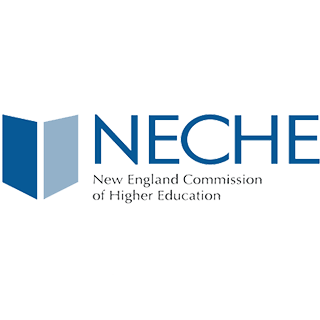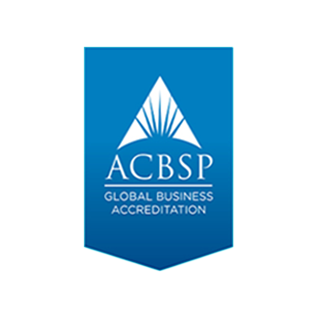For Jazzmen Shipp, Earning a Degree Changed Everything
Business | 2min Read

Become a master at minimizing risk and maximizing return when you earn your online Master of Science (MS) in Finance from Southern New Hampshire University. In this program, you'll learn advanced knowledge and skills in investments, capital budgeting, portfolio management and shareholder value.
The MS in Finance curriculum and outcomes are aligned with the Chartered Financial Analysis Institute's (CFA) competencies and curriculum standards, and are designed to provide students with the knowledge and skills they need to make informed investment decisions.

Practice real-world financial analysis, decision-making and quantitative skills in the master's in finance online program at SNHU. Your coursework will cover investments, corporate finance, advanced economic theory, financial markets and beyond, helping you prepare for your next career move.
Whether you choose the general track or one of 2 concentrations, you can tailor your degree to suit your career goals – helping give you an edge where it matters most.
When you enroll in the online finance master's degree at SNHU, you can choose from 2 concentrations or stick with the general track.
Gain a broader advanced education in the way money and accounting affect businesses by earning your online Master of Science (MS) in Finance with a concentration in Corporate Finance.
Want to position yourself for roles like corporate treasurer, controller, director of finance, financial analyst, credit manager or cash manager? The corporate finance-focused curriculum will enhance your understanding of liquidity analysis, payment systems, cash forecasting, quantitative risk assessment and more.
The corporate finance concentration focuses on today’s corporate environment and how theory, strategy and financing approaches are employed to make decisions in a complex and ever-changing environment.
Successful graduates of this program should be able to analyze capital structure, capital budgeting and financial policy – and apply theory, strategies and long-term finance approaches to various decision-making situations.
Career outlook:
According to the U.S. Bureau of Labor Statistics, personal financial advising jobs are projected to grow 13% through 2032.1 Employment of financial analysts is expected to rise by 8% and financial managers by 16% in that same time period.1 Positions in finance could continue to grow for those with a master's degree, both inside and outside of the finance industry.
Courses may include:
Enhance your professional skill set with a broad range of invaluable analytical and technical skills when you earn an online Master of Science (MS) in Finance with a concentration in Investments & Securities.
You'll gain a greater understanding of how to analyze assets, debt and equity, securities, investment strategies, portfolios and other financial instruments, as well as fiscal and monetary policies and procedures. With this specialized knowledge, you'll be well poised to seek an advanced career in the securities industry.
SNHU instructors are finance professionals, so you’ll be learning from people with high levels of financial experience who can teach you the ins, outs and best methods for analyzing, reporting and presenting financial data for any senior financial job function.
Successful graduates of the program should be able to analyze equity and alternative investments using quantitative techniques and financial theories in relation to portfolio management.
Career outlook:
According to the U.S. Bureau of Labor Statistics, investments and securities careers show positive signs of growth in the coming years. Sparked by an increase in global investments in securities and commodities, along with a growing demand for investment advice, the BLS projects that employment as securities, commodities and financial services sales agents will increase by 7% by 2032.1
By earning an online MS in Finance with a concentration in Investments & Securities from SNHU, you can increase your leverage when competing for top jobs. A master's, combined with the appropriate licensing, can position you for a career as a broker, investment banker, trader or financial services sales agent.
Courses may include:
Coursework for the online master's in finance provides hands-on experience through case studies that resemble real-world finance reports. You’ll gain a solid understanding of quantitative tools and analysis relative to financial markets, financial institutions, government and corporate applications.
Our MS Finance curriculum is based on the CFA® (Chartered Financial Analyst) Candidate Body of Knowledge (CBOK). This credential – administered through the CFA Institute – helps you earn an industry-leading designation that can help you expand your knowledge on corporate finance, economics, ethics, financial reporting and analysis, portfolio management, quantitative methods and security analysis.
Another benefit of the MS in Finance is that it is one of only about 150 accredited programs around the world that counts toward eligibility for the AFA Accredited Financial Analyst® by Global Academy of Finance and Management. Upon completion of your master's, you can apply for the designation.
Visit the course catalog to view the full MS in Finance curriculum.
Video Communication Platform:
Internet Connectivity for Virtual Labs:
Minimum Specifications:
Additional Information:
SNHU has provided additional information for programs that educationally prepare students for professional licensure or certification. Learn more about what that means for your program on our licensure and certification disclosure page.
Our no-commitment application can help you decide if SNHU is the right college for you and your career goals. Apply up until 2 days before the term starts!
Upcoming term starts: July 6, 2026 | September 21, 2026
Attending college online at SNHU can be a life-changing experience. In fact, 93.4% of online students would recommend SNHU according to a 2025 survey with 8,718 respondents.
Our faculty bring with them decades of experience in finance. By bringing real-world insights to the classroom, our instructors can help position graduates for success in the field.
 Sal Sadiq is a Chartered Financial Analyst and a Chartered Alternative Investment Analyst who has spent more than 25 years in the regulatory industry. He helps oversee capital raising transactions in the public and private industries and examines companies for compliance by investigating their management teams, background and overall operations.
Sal Sadiq is a Chartered Financial Analyst and a Chartered Alternative Investment Analyst who has spent more than 25 years in the regulatory industry. He helps oversee capital raising transactions in the public and private industries and examines companies for compliance by investigating their management teams, background and overall operations.
Position
Adjunct instructor
Joined SNHU
2008
Education
"It is often difficult to start a degree program. But once one starts the degree program, one will embark on a great journey that has long-term dividends and practical benefits both from a career and personal development perspective."
Sal Sadiq, adjunct instructor at SNHU
Read more about Sal Sadiq and other online faculty at SNHU.
 Dr. Zuzana Buzzell began her SNHU career in 2005 as an adjunct faculty member before taking a full-time position in 2014. She has more than 15 years of experience developing and teaching programs in finance, business and economics, and has worked in hybrid, traditional and online academic programs, government agencies and in the private sector.
Dr. Zuzana Buzzell began her SNHU career in 2005 as an adjunct faculty member before taking a full-time position in 2014. She has more than 15 years of experience developing and teaching programs in finance, business and economics, and has worked in hybrid, traditional and online academic programs, government agencies and in the private sector.
Dr. Buzzell’s research interests include digital ethics, finance technology, cryptocurrencies, and the future of finance and blockchains. She has published in several journals, conference papers and blogs on topics including mortgage-backed securities, finance technology, Brexit and more.
Position
Associate Dean, Business
Joined SNHU
2005
Education
"This program is a good networking opportunity for our students, since many are already working in the industry."
Dr. Zuzana Buzzell, associate dean of business at SNHU
Hear what some of our SNHU faculty members have to say about our online master's in finance program:
“A graduate degree in finance lets you learn more about some of the more specific or challenging finance topics, such as options, futures and other derivatives, which can then help you advance in those areas."
Kristin Regis, senior associate dean at SNHU
You’ll take your courses within SNHU’s Brightspace platform. This is where you’ll find your:

At Southern New Hampshire University, you'll have access to a powerful network of more than 400,000 students, alumni and staff that can help support you long after graduation. Our instructors offer relevant, real-world expertise to help you understand and navigate the field. Plus, with our growing, nationwide alumni network, you'll have the potential to tap into a number of internship and career opportunities.
Recently, SNHU has been nationally recognized for leading the way toward more innovative, affordable and achievable education:
Founded in 1932, Southern New Hampshire University is a private, nonprofit institution with over 250,000 graduates across the country. SNHU is accredited by the regional accreditor New England Commission of Higher Education (NECHE), which advocates for institutional improvement and public assurance of quality.
No application fee. No test scores. And no college essay. Just a simple form with basic information. It’s another way SNHU helps you reach your goals sooner.
It's easy, fast and free.
Whether you're applying for an undergraduate or graduate degree, you’ll fill out a form to verify your previous education experience. As part of our admissions process, we'll help you request transcripts from your previous school(s) to see if you can transfer any credits into your SNHU program! (Also for free!)
After reviewing your official evaluation, you can decide if SNHU is right for you! If you choose to enroll, just pick your start date and get ready for classes to begin.
Talk to an admission counselor: 888.327.SNHU | enroll@snhu.edu
SNHU is accredited by the regional accreditor the New England Commission of Higher Education (NECHE). The university also carries specialized accreditations for some programs.
This program and its concentrations are accredited by the Accreditation Council for Business Schools and Programs (ACBSP). Student achievement data can be found on the ACBSP accreditation page.


As a nonprofit university, SNHU offers some of the lowest online tuition rates in the country. And when you work with our Financial Services team, we'll explore ways to help you save even more on your education – and customize a payment plan that works for you.
*before previously earned credits are applied
Tuition rates are subject to change and are reviewed annually.
**Note: Students receiving this rate are not eligible for additional discounts.
Additional costs: Course materials vary by course.
If 3 of your prior learning credits ($659/credit) are accepted toward your master’s degree.
Your remaining tuition cost: $21,747
If 6 of your prior learning credits ($659/credit) are accepted toward your master’s degree.
Your remaining tuition cost: $19,770
If 9 of your prior learning credits ($659/credit) are accepted toward your master’s degree.
Your remaining tuition cost: $17,793
If 12 of your prior learning credits ($659/credit) are accepted toward your master’s degree.
Your remaining tuition cost: $15,816
How we estimate your tuition cost:
We look at the cost per credit multiplied by the number of credits you need to earn for a master's degree. Most master's degrees require 36 credits. SNHU allows you to transfer in up to 12 credits, requiring a minimum of 24 credits to be taken at SNHU. This is only a tuition estimator and doesn't account for other fees that may be associated with your program of choice.
Transfer credits toward your master's degree program at SNHU. If you’ve taken one course or many, we’ll evaluate them for you.
Fill out the FAFSA to see if you’re eligible for grants or work-study. (You could also be offered loans, though you’ll have to pay those back later.)
Earn credits in leadership, technology and more – while taking advantage of an online graduate tuition discount for active-duty service members and spouses.
Getting free money for college – from SNHU or an outside organization – could help you save hundreds or even thousands of dollars.
Bring in credits from popular options like CLEP, Sophia Learning, Google and other common credit for prior learning (CPL) experiences.
Learn how you can save money with tuition reimbursement from your employer.
Take advantage of an online tuition discount through your organization’s partnership with SNHU. Check with your employer to see if your organization partners with us and if you’re eligible for additional tuition savings and partner education benefits.
Getting your master's in finance degree online is a great way to learn advanced skills in this fast-paced industry. Whether you choose a career that directly involves finance or prefer to focus on a more administrative role managing a financial organization, earning your MS in Finance can help prepare you for success.
And, should you decide to pursue a Chartered Financial Analyst® (CFA) designation or enter into other financial analyst roles without it, you'll be able to help clients make investment decisions and provide services to enhance financial markets. The scope of these services can include trading, asset management and regulation of these systems.
Finance is a multifaceted field, and your master's in finance prepare you for a rewarding career in a variety of occupations, including:
Manage client investment portfolios, contribute to new business and maintain client relationships.
Evaluate investment opportunities in banks, pension funds, mutual funds, securities firms, insurance companies and beyond.
Manage the financial health of an organization through producing financial reports, directing investment activities and more.
Provide advice on things like investments, insurance, mortgages and estate planning to help people manage their finances.
Assess and monitor clients' financial situations, develop financial strategies and prepare financial status analyses/reports.
Collect and interpret data, study economic trends and meet with investors to assess portfolio recommendations.
Increase nationally in financial analyst positions through 2032, projected by the U.S. Bureau of Labor Statistics (BLS).1
Median annual pay nationally for financial analysts as of May 2023, according to the BLS.1 Statistic not based on wage data for SNHU graduates.
Understanding the numbers
When reviewing job growth and salary information, it’s important to remember that actual numbers can vary due to many different factors—like years of experience in the role, industry of employment, geographic location, worker skill and economic conditions. Cited projections are based on Bureau of Labor Statistics data, not on SNHU graduate outcomes, and do not guarantee actual salary or job growth.

This is actually my first business role or job, and (my courses) helped show me a lot behind the scenes of what it takes to manage a business firm and all of the finance requirements that come with it.
Studying finance — and earning a graduate degree in finance, in particular — can be a smart choice both personally and professionally.
Learning personal finance skills like budgeting, investing, managing debt and saving can give you a solid foundation of financial responsibility. These are skills anyone can benefit from, regardless of income or career path. And even if you feel like you've got a solid grasp on personal finance, there's always more to learn — and there are always ways to grow even further.
Studying finance can also give you a leg up professionally. A finance degree program can give you a strong foundation in banking, economics and financial markets. Degree concentrations in finance dive deeper into corporate finance, private equity, venture capital, financial planning and risk management. You’ll explore global financial markets, how they function and fluctuate, and how to wisely and effectively manage and mitigate the risks inherent in investing.
You’ll also learn communications, quantitative analysis and industry best practices – all valuable skills for future businesspeople. The best finance professionals have in-depth knowledge of the stock market and other types of investments and know how to interpret mathematical and statistical data.
Regular demand and a wide range of career options make finance an excellent choice for anyone looking for a smart educational investment. The BLS projects 911,400 openings within business and financial occupations annually, on average, through 2032.1
Learn about other jobs you can pursue with a degree in finance.
An advanced degree in finance can open up a wide range of opportunities. You can pursue a traditional career path in banking, asset management, insurance, venture capital or private equity. Alternatively, you might consider a career path as an educator.
Along with professional experience, many upper-management positions in finance may require an advanced degree or certification, such as the Chartered Financial Analyst® (CFA) credential.
In addition, those with financial expertise may want to consider self-employment.
"A finance degree has long been recognized as one of the top degrees when owning a small business," said Dr. Zuzana Buzzell, associate dean of business at SNHU. "Understanding the financial aspects of small business operations and smart budgeting is a key to long-term success of small business owners."
 A finance degree can open doors to many careers in business — just ask Nathan Yates ’14. Armed with his master's in finance, this self-made leader left a position with a Chicago-based equity research firm in 2014 to look for a new job. Driven by the entrepreneurial itch and a vision that online learning could help growing businesses solve problems and improve workflows, he launched a venture called the Forward View.
A finance degree can open doors to many careers in business — just ask Nathan Yates ’14. Armed with his master's in finance, this self-made leader left a position with a Chicago-based equity research firm in 2014 to look for a new job. Driven by the entrepreneurial itch and a vision that online learning could help growing businesses solve problems and improve workflows, he launched a venture called the Forward View.
A year later, after growing the Forward View team with specialties and skills he didn't have, Yates took a new approach. He wanted another financial analyst by his side, so he hired a former SNHU classmate with a bachelor's in finance.
Each subsequent hire has had a strong background in finance and economics, and Yates has since launched the Sporting Goods Monitor, a game-changing service that provides unique coverage and forecasts for the sporting retail industry.
In October 2014, Yates once again tapped into his network and became an adjunct finance instructor at SNHU. By the following September, he accepted the role of finance and economics team lead. Today, he continues to inspire students looking to maximize the value of a finance degree.
There are a myriad of opportunities for finance majors on the corporate side, from local firms to global conglomerates. Entry-level finance positions generally conduct research and present their findings to their financial managers, who in turn help organizations or industries meet their financial goals, according to the U.S. Bureau of Labor Statistics.1
If you aspire to become a CFO, corporate treasurer, controller, director of finance or related position, an online MS in Finance with a concentration in Corporate Finance can help expand your career opportunities. This program’s focus on corporate finance digs into topics such as liquidity analysis, budgeting, comprehensive risk assessment and ethical considerations for corporations.
If you’re not sure which type of finance job is right for you, seek out corporations that offer rotational programs to new employees. Programs like these let you experience different areas of the business so you can find your best fit and may even lead to opportunities to specialize.
Both an MBA and an MS in Finance can be valuable credentials. Ultimately, determining which is better for you depends on your career goals.
With a focus in math, markets and financial reporting and analysis, an MS in Finance sets you up for advancement in more specialized roles, like those in investments, trading and risk management.
An MBA is broader, and it's accepted across a variety of professions. You'll also cover many business topics, like operations management, marketing, social responsibility and, yes, finance. SNHU offers 20 career-focused concentrations in the online MBA program, including an MBA in Finance and MBA in Accounting.
A master's in finance and a master's in accounting are equally valuable degrees. However, when it comes to which degree is better for you, it all depends on your personal goals.
Put simply, finance is the management of money. It's heavily focused on the future, studying the market to effectively manage and mitigate the risks of investing.
Students pursuing an online master's in finance at SNHU can expect to learn things like:
Upon graduating, these students may acquire jobs in wealth management, financial analysis and beyond.
While finance is primarily future-focused, accounting generally works with existing records and documents. Accountants use financial data to answer questions like: What happened? Why did it happen? What does it mean?
Those who earn a master's in accounting can gain knowledge of:
Graduates from SNHU with this degree often pursue roles in banks, tax services and more.
Read more about the difference between finance and accounting.
Yes, an online master's in finance is a respected degree.
SNHU was founded as an accounting school in 1932 and has a long history of providing highly esteemed finance-related undergraduate and graduate degrees. MS in Finance students at SNHU have access to networking opportunities through well-connected alumni and often pursue senior roles in financial management, consulting and the like.
1Bureau of Labor Statistics, U.S. Department of Labor, Occupational Outlook Handbook, on the internet, at:
Cited projections may not reflect local and/or short-term economic or job conditions and do not guarantee actual job growth.
Certified Financial Planner Board of Standards, Inc. (CFP Board) owns the CFP® certification mark, the CERTIFIED FINANCIAL PLANNER® certification mark, the CFP® (with plaque design) certification mark and the CFP® (with flame design) certification mark in the United States, which it authorizes use of by individuals who successfully complete CFP Board's initial and ongoing certification requirements. CFP Board also owns the CFP BOARD® service mark. Any marks owned by CFP Board are used with permission.